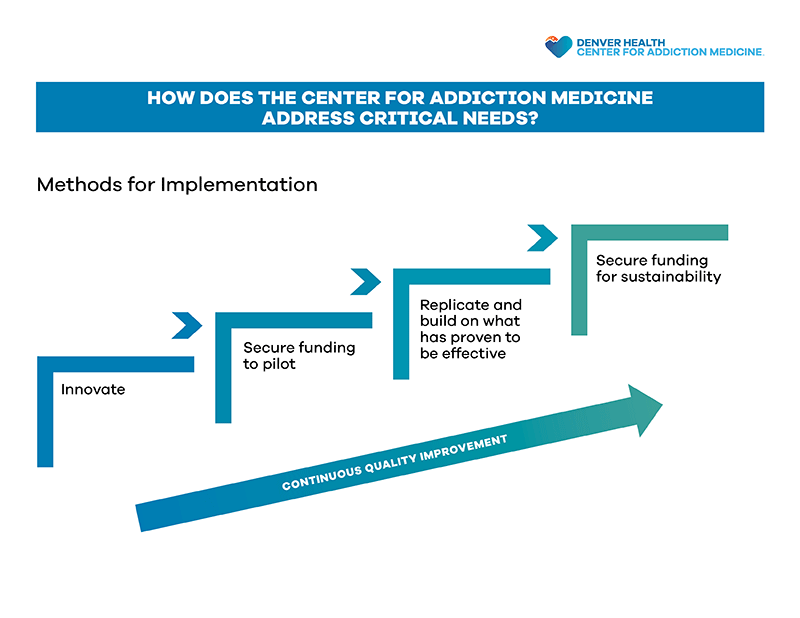Implementation
The Center for Addiction uses a standardized method for implementing new initiatives; the process is built on innovation, piloting, understanding what is proven to be effective, and then replicating. With a goal of securing sustainable funding to continue what works well. We maintain a focus on quality improvement throughout the entire process to ensure we are learning and bolstering existing processes in an ongoing manner.

Programs
Partnership with Sobriety House
This program offers direct linkage from the Denver Health hospital to Intensive Residential Treatment (IRT) for patients that are assessed to meet those treatment needs. Patients are transferred to IRT at Sobriety House upon hospital discharge, where their addiction is treated while they continue receiving addiction treatment medication and other health services from Denver Health. This is particularly helpful for our patients who have long hospital stays, complex health issues related to their substance misuse, and are ready to engage in residential treatment; many of whom are experiencing homelessness.
Substance Treatment Phone Line
This line is staffed by experienced substance treatment experts who can provide brief screening, recommendations, and guidance to individuals, friends/families, and other professionals on accessing substance treatment both here at Denver Health, and through other programs in our Denver community and surrounding areas. Please call us at 303-436-5711. Calls are answered Monday-Friday, 9 a.m. - 5 p.m. (excluding holidays).


